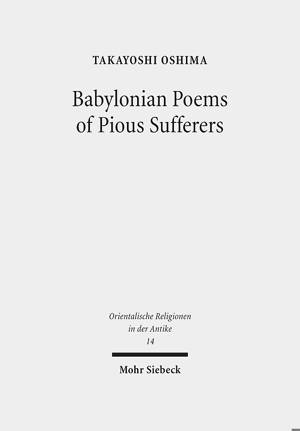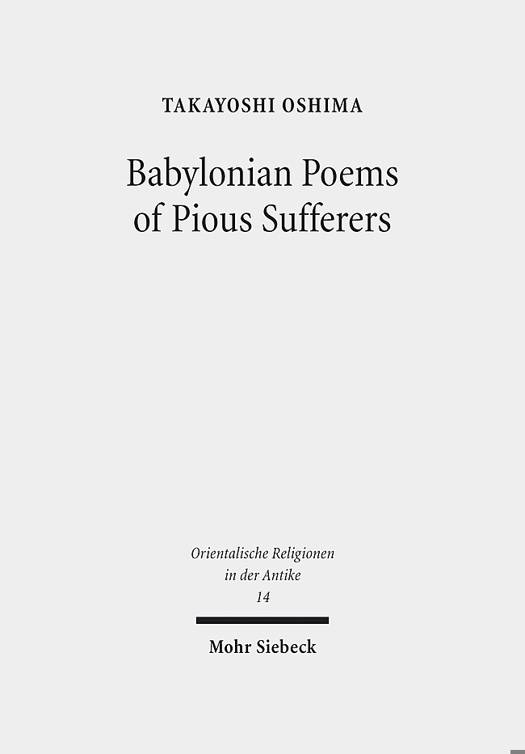
Bedankt voor het vertrouwen het afgelopen jaar! Om jou te bedanken bieden we GRATIS verzending (in België) aan op alles gedurende de hele maand januari.
- Afhalen na 1 uur in een winkel met voorraad
- In januari gratis thuislevering in België
- Ruim aanbod met 7 miljoen producten
Bedankt voor het vertrouwen het afgelopen jaar! Om jou te bedanken bieden we GRATIS verzending (in België) aan op alles gedurende de hele maand januari.
- Afhalen na 1 uur in een winkel met voorraad
- In januari gratis thuislevering in België
- Ruim aanbod met 7 miljoen producten
Zoeken
€ 310,95
+ 621 punten
Omschrijving
Takayoshi Oshima analyses the two most important Babylonian wisdom texts: Ludlul Bel Nemeqi (also known as the Babylonian Job or the Babylonian Righteous Sufferer) and the so-called Babylonian Theodicy. On the basis of the hitherto published as well as newly available, unpublished cuneiform manuscripts, the author establishes a new critical text for each poem and gives an English translation. He offers detailed philological and critical notes to the texts, discussing both the textual and the interpretive issues evoked by individual words and passages. In addition, however, each poem is preceded by a lengthy discussion of its origins, intention, and plot, as well as by more general considerations of its cultural and historical background, including short but important observations on the relationship to Old Testament wisdom literature.
Specificaties
Betrokkenen
- Auteur(s):
- Uitgeverij:
Inhoud
- Aantal bladzijden:
- 572
- Taal:
- Engels
- Reeks:
- Reeksnummer:
- nr. 14
Eigenschappen
- Productcode (EAN):
- 9783161533891
- Verschijningsdatum:
- 1/12/2014
- Uitvoering:
- Hardcover
- Formaat:
- Genaaid
- Afmetingen:
- 168 mm x 231 mm
- Gewicht:
- 1364 g

Alleen bij Standaard Boekhandel
+ 621 punten op je klantenkaart van Standaard Boekhandel
Beoordelingen
We publiceren alleen reviews die voldoen aan de voorwaarden voor reviews. Bekijk onze voorwaarden voor reviews.









